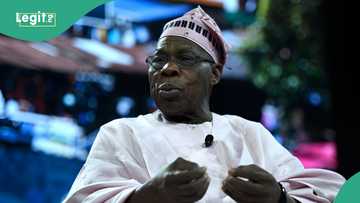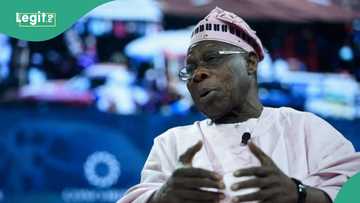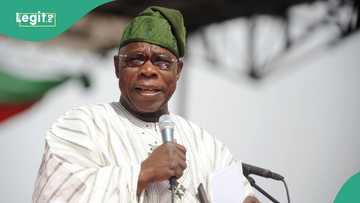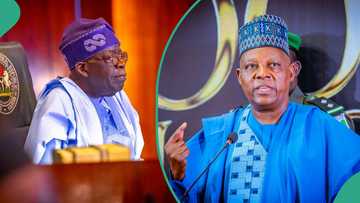How Nigeria Lost Out in 'Operation Feed The Nation', Obasanjo Speaks Out
- Former president Olusegun Obasanjo has explained how a decision by the late Shehu Shagari is allegedly one of the reasons for Nigeria’s failure in food sufficiency
- During a think tank event attended by Legit.ng, Obasanjo noted after he left a policy of ‘rice production’, his successor came in and cancelled it
- A veteran farmer, Obasanjo launched the ´Operation Feed the Nation´ whilst the military head of state and has been a prominent advocate for agribusiness in Nigeria and across Africa
Legit.ng journalist, Ridwan Adeola Yusuf, has over 9 years of experience covering public affairs, economy, and governance.
Ikeja, Lagos state - Former President Olusegun Obasanjo has said after the Operation Feed the Nation (OFN) was launched on May 20, 1976, the federal ministry of agriculture went around in July of that year and came back with a report that Nigeria would be self-sufficient in rice.
Obasanjo said to encourage Nigerians, his military government banned the importation of rice—as recommended by top officials of the ministry.

Source: Getty Images
According to the 87-year-old, a lack of continuity of the agricultural policies by the next government was a major factor responsible for food insecurity in Nigeria.
PAY ATTENTION: Click “See First” under the “Following” tab to see Legit.ng News on your Facebook News Feed!
The former Nigerian leader spoke recently at the 7th Late Engr. Samuel Olatunde Fadahunsi memorial lecture attended by Legit.ng.
The event, held in Ikeja, Lagos state, was themed ‘Environmental impact on Food security in Nigeria: A call for timely intervention by Environmental Engineers’.
‘Obj’ as Obasanjo is fondly called, explained:
“When our successor came in, NPN-led government, President Shehu Shagari, they put pressure and they felt they needed money. Then, the government lifted the ban on importation, and we haven’t gotten out of it (food insecurity) till today. That was how we lost out from ‘Operation Feed The Nation’.”
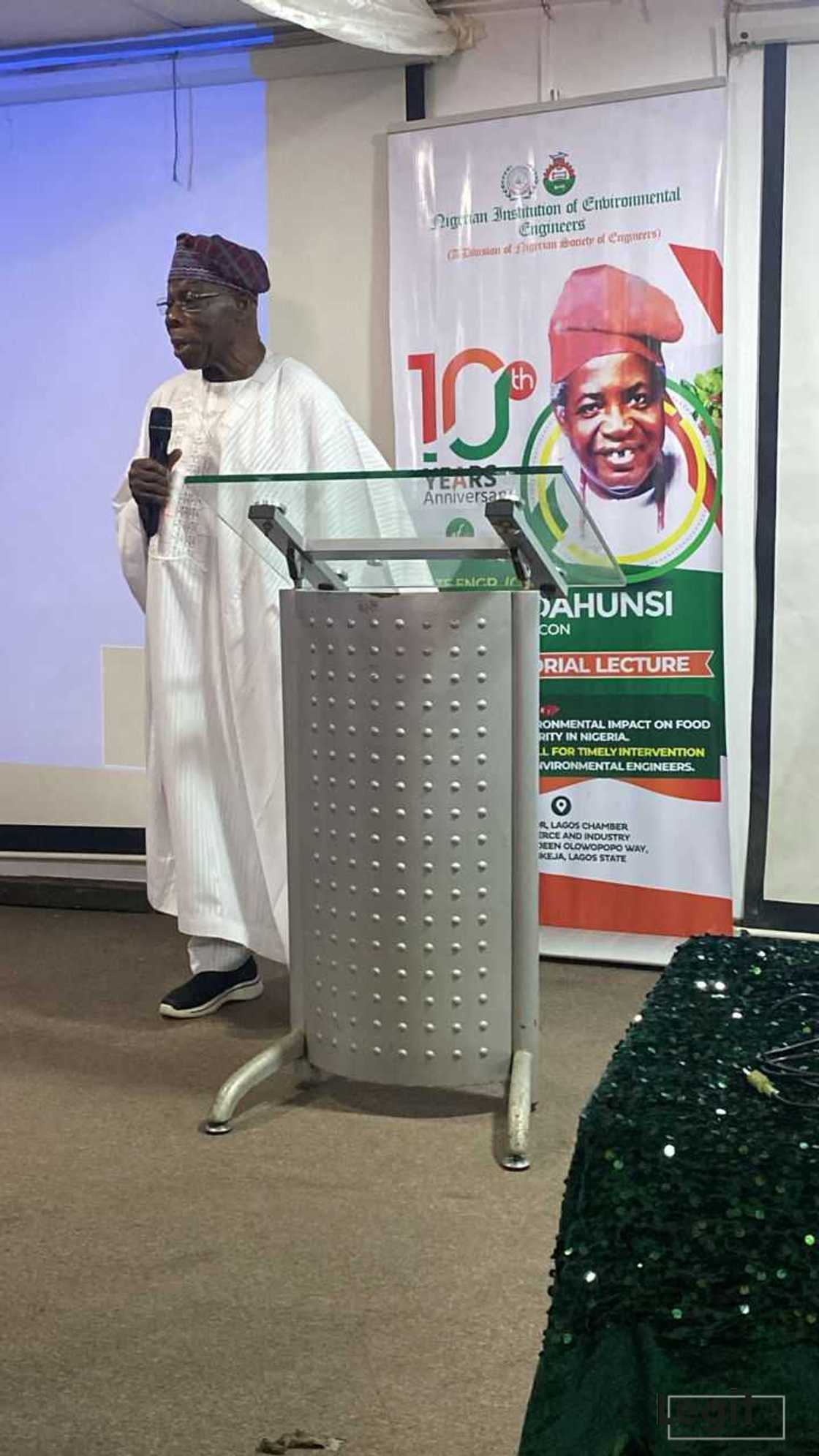
Source: Original
Furthermore, Obasanjo noted that the idea of the OFN was for every Nigerian to have a sense of awareness and for citizens "to do something", adding that “more importantly, for the government to lead, make input available, subsidise fertiliser and others”.
He said:
“Look, those people who tell us ‘you shouldn’t subsidise agriculture', they are subsidising.
“A former prime minister of the UK who is into rearing of sheep, he said he was getting two and a half dollars in a year to keep the sheep as subsidy. And they say we shouldn’t subsidies agriculture. And yet, agriculture is seen by them as a security issue.
"Anybody who feeds you can enslave you. They know that.”
Obasanjo concluded:
“If they (the West) import rice from Thailand, it would cost them one-third of what it will cost them to produce it. But they would rather produce rice at three times more in their own country than import rice from Thailand because it is 'a security issue'.”
Food insecurity: Engineers seek solutions
Legit.ng reports that the guest speaker, Professor Jacob Ademola Shonibare of the Department of Chemical Engineering, Obafemi Awolowo University (OAU), Ile-Ife, Osun state, explored environmental hurdles and suggested 'solutions'.
The lecture emphasised Nigeria's heavy reliance on food imports and the need to boost local farming to reverse the trend.
Prof. Shonibare described food security as a global crisis, underscoring the responsibility of everyone to ensure a stable food supply.
Dignitaries at the programme include Engr (Mrs.) Margaret Oguntala, the President of the Nigerian Society of Engineers (NSE); Engr Nureni Adegboyega Ogunyemi, the national chairman of the Nigerian Institution of Environmental Engineers (NIEE); Engr. Yusuf Oladimeji Majolagbe, the chairman of the NIEE, Lagos state chapter, among others.
Certified engineers, scientists, food companies, public servants, students, and members of the public, also attended.
Apart from the memorial lecture, new NIEE fellows were inducted into the association.
Read more on Nigeria's food security challenges
- Food security: Scientist reveals solution to achieving ‘zero hunger’ in Nigeria
- Journalist recommends solutions to Nigeria's food security problem
- Food security: Tinubu’s aide reveals FG’s plan to combat hunger in Nigeria
Hardship: Why Nigeria remains backward - Obasanjo
Earlier, Legit.ng reported that Obasanjo said Nigeria's socio-economic and political situations have remained stagnant due to a leadership deficit.
Obasanjo said for Nigeria to progress from its present dilemma, the present crops of those he labelled “self-centred leaders” occupying offices at all levels of governance must loosen their hold on the country.
Proofreading by James, Ojo Adakole, journalist and copy editor at Legit.ng.
PAY ATTENTION: Donate to Legit Charity on Patreon. Your support matters!
Source: Legit.ng


